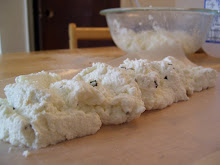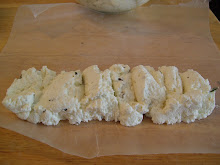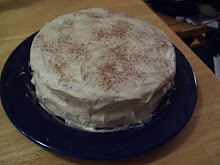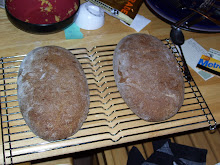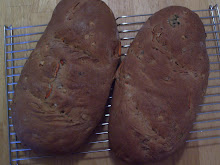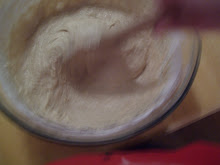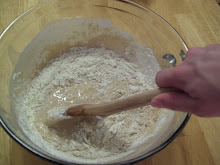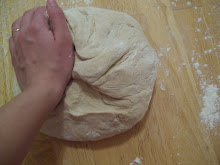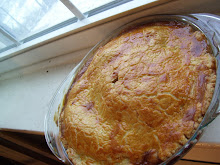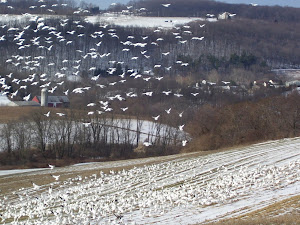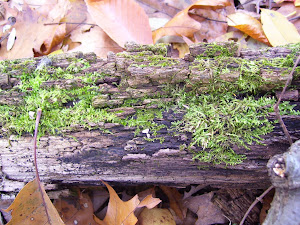When all of us were children I am sure we used the phrase, “when I grow up I want to be a _____.” As a matter of fact this phrase permeated my language until I was in college. After college, I felt I had come to an age where I should no longer be using that phrase, being what I suppose most people would call a “grown up” (ugh, how strange!). But that sort of thinking still was very much alive in how I thought about future time. I will be a ____, no actually Iwill be a ______, or on second though I’d rather be a _____.
Throughout the past 2 ½ years that I have been out of school I have been tossing my ideas back and forth about what I think I will be doing. I have often been fixated on the future, what will I become? What will I do with my life? What I find interesting about this process is that there are so many different ways to conceive of future time. I suppose there is the rather cliché idea of finding one’s passion and pursuing it. We are supposed to figure out what that one thing is we want to do with our lives and just do it. And there is another idea, that of determining one’s vocation. We are apparently called to do something and it is up to us as to how we answer that call. What I find striking is how different these two ideas are. They include very different approaches, and are rife with unique difficulties!
I looked up the word “vocation” in Webster’s New World Dictionary and it said that the word is derived from several Latin words: “vocatio” meaning a calling, invitation, court summons; “vocare” which means to call, and “vox” meaning voice. This idea of some mysterious being or trade actually addressing me, inviting me to partake in a particular action and behavior is indeed quite bizarre, perhaps even frightening. Will I like what I am called to do? Who will call? How will I know I am being called? What do I need to do to hear the call? Must I believe in a god? Do I need to pray? When will it happen? And, what I am most fascinated by is why would I be asked to do something in particular? Is there really some predetermined purpose that I am meant to fulfill? What if I said no? What I find striking about this idea is that it is a rather outward action: listening for something or someone. The act of listening means that you cannot let your self get in the way. And of course, it seems that this process necessitates waiting. I must wait for the call. Perhaps, even vigilant. How long must one wait? What do you do while you wait?
As someone who went to Catholic school from 4th through 12th grade, I can’t help but feel the religious overtones of the word “vocation.” As a student, I was taught that one’s vocation was part of God’s will. In order to determine that will, I must pray and await an answer. I thought then and still think it somewhat silly to expect any sort of response from God. How could I expect to understand the divine’s call? Can you even imagine God’s mouth open and beckoning? Would I be able to live through the experience and still be a human? I find myself more charmed with the idea of signs. There are these simple mundane things laced into the commonality of a day, but they somehow reverberate with elements of the divine. Perhaps they lead onto the path of the will of the divine. This idea requires such faith, dedication, and perhaps a certain amount of emptiness of self - the ability to give of oneself on account of small hints or nudges that perhaps are of a divine nature. And, I still must ask, why? Why would I be called to a particular action? Is it something I would be good at? There must be more than that. I am sure dozens of people can do the jobs that we are called to. Is there some importance to being part of the group called to a trade? Is there some contribution I can make that no one else can? Deep down, I feel this is unlikely.
There is the other idea of “pursuing one’s passion,” a somewhat new-agey and idealistic strategy, but I have to say it sounds pretty good. It seems that this concept requires one to look inward and discover what you love to do. Once you have your finger on that rope, you are supposed to hold on and pull yourself along that rope and let it guide you. But what if you have several passions, can you pull yourself along three different ropes? And what is it that makes us love a particular action or idea. Why do some prefer numbers and others prefer letters? Is there any purpose to those preferences?
And then there are several other conundrums to this particular process. I can talk from experience here. As a college student I was very idealistic and very much wanted to see change in our society for the better. Not only did I want to witness it, but I wanted to act to make change happen. After college I pursued a few different paths – 2 AmeriCorps positions and a position as a political organizer. In these positions, and especially in the position as a political organizer the mission of the organization I worked for was something I fully supported and felt passionately about. My work became wrapped up in daily tasks I despised which I found completely uninspiring and at times I felt the work I was doing was itself preventing progress. I was enmeshed in a bureaucracy that had a prescribed way of pursuing it’s work, and there was no deviating from that prescribed process. My job was to simply do what the instruction manual told me to do. There was no room for my ideas, or the ideas of those I was supposed to be organizing. We were just following a calendar and waiting to hear what we should do next from the powers that be. I also found hypocrisy to the work of this and many other organizations that pursue an honorable idea. In the very nature of a large and powerful organization, there is a certain amount of powerlessness among those that work for that organization. The larger it is, the more powerful the will of the “big guy” is. There is a significant loss of voice and empowerment in these employment situations. You are asked to do the work as directed, not make it. For me, this seemed directly contrary to the very ideas a political and social change organization is founded on. How can people learn to become politically viable and vocal if they are simply asked to follow directions from yet another large organization with a spiffy logo? Happily, I held the job of political organizer for only a month. What I was doing was indeed in some way related to what I was passionate about. But I feel I need more than proximity. I actually want to do what I love. I want to love my work. Is this too unrealistic? And if it is, why is it unrealistic?
Anyway, I rant and digress. Back to the topic at hand. What I was originally trying to say is that there is a difference between work that is related to something you are passionate about and actually doing work that you love. But I wonder, is it selfish to only do work you love. Should I simply garden, write, and bake – would that be ok? Is it an ethical pursuit if it is only non-harming? Should it be more – bigger? Or is that simply ambition and greed? Is it enough to love something? Is it enough to love someone? Should there be a larger contribution?
At the current moment, I am rather intrigued with the simplicity of pursuing something you enjoy doing that is indeed a simple trade, doing it in a positive way, and pursuing it perhaps as a means of contemplation. Again, I find I am greatly influenced by my Catholic school background. I attended two Catholic schools – one with Visitation nuns and the other with Dominican nuns. In my middle school days I actually had the strong desire to become a nun, preferable a contemplative. I was devoutly Catholic, despite being unconfirmed and from a family of one atheist and one fallen Catholic. Though I have since deviated from the path of becoming a nun, and even from being a Catholic, I still am very much inspired by the idea of a religious calling to a contemplative order. Part of what I find inspiring is the pure simplicity – pursuing very simple, hands on labor but doing it as means to quite literally work through spiritual ideas. The work can become a metaphor for so many religious concepts. Also, the work can become a text that guides, inspires, and drives the journey. Father Domenic Garramone OSB writes about the religious lessons and metaphors he found through baking bread in Bake and Be Blessed (a great book, I definitely recommend it!). Perhaps part of the reason why each of us might have a vocation (referring to things I was talking about earlier) is because there is a particular task that might enhance one’s spiritual life more. Although this predicates that our vocation is to some extent predetermined and willed by another higher being.
Alas, I think I have come to the end of this entry, as inconclusive as it might be. Have a wonderful weekend enjoying time away from what may or may not be your vocation…

